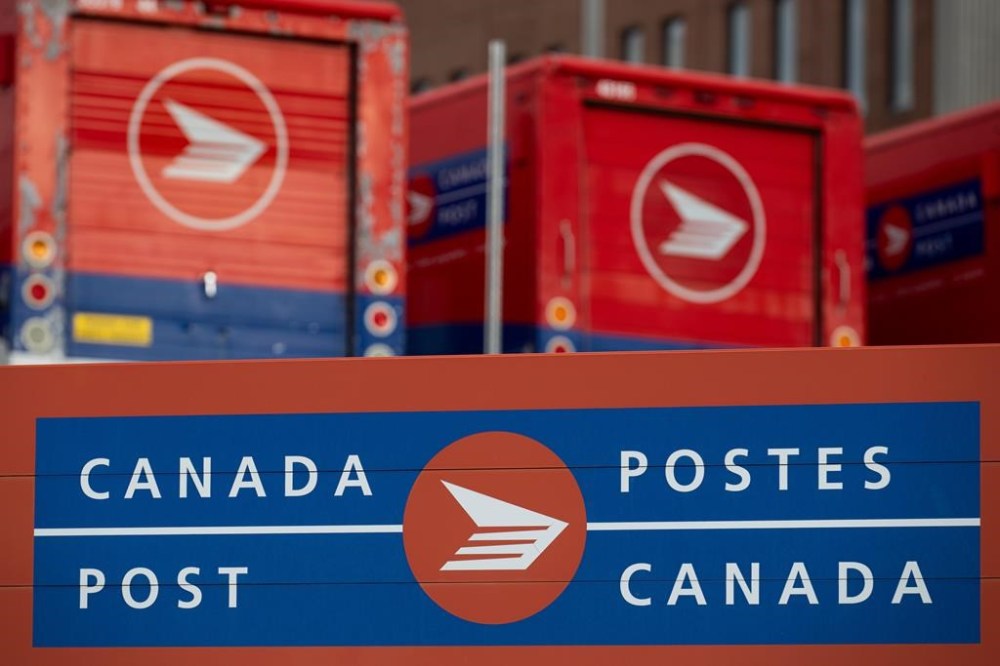Canada Post strike ignores hard reality
Advertisement
Read this article for free:
or
Already have an account? Log in here »
We need your support!
Local journalism needs your support!
As we navigate through unprecedented times, our journalists are working harder than ever to bring you the latest local updates to keep you safe and informed.
Now, more than ever, we need your support.
Starting at $15.99 plus taxes every four weeks you can access your Brandon Sun online and full access to all content as it appears on our website.
Subscribe Nowor call circulation directly at (204) 727-0527.
Your pledge helps to ensure we provide the news that matters most to your community!
To continue reading, please subscribe:
Add Brandon Sun access to your Winnipeg Free Press subscription for only
$1 for the first 4 weeks*
*$1 will be added to your next bill. After your 4 weeks access is complete your rate will increase by $4.99 a X percent off the regular rate.
Read unlimited articles for free today:
or
Already have an account? Log in here »
This appears to be a classic case of failing to “read the room.”
In the ongoing dispute between Canada Post and its unionized employees, the Canadian Union of Postal Workers has adopted a position that seems either inexplicably unmindful or intentionally heedless of the current realities facing the Crown corporation.
In a decidedly grim announcement last week, Public Works and Procurement Minister Joël Lightbound directed Canada Post to adopt massive cost-cutting measures, including an end to door-to-door mail delivery and the closure of some rural post offices.

Note that this decision marks a return to the cost-cutting measures of the former Conservative federal government of a decade before, where the Harper government was moving ahead with ending door-to-door deliveries. As Liberal leader at the time, Justin Trudeau campaigned against the move to community mailboxes in 2015, and soon cancelled the plan once he became prime minister.
As the New York Times mused last month, the decision by the Carney Liberals to change course is a “striking reversal,” but a necessary one given the huge and growing financial hurdles facing Canada Post.
As Minister Lightbound said, the reality has changed over the last 10 years, and Canada Post is no longer viable as an institution without a massive overhaul.
“I think there’s an understanding amongst Canadians that something needs to happen if we want to preserve that institution,” Lightbound said.
Canada Post workers, however, don’t seem to share that opinion. In response to the federal government’s decision, CUPW ordered the 55,000 workers it represents onto the street for a full-scale nationwide strike.
CUPW president Jan Simpson called the minister’s announcement “a direct assault on our public post office, the public’s right to participate in political processes, and good, unionized jobs across the country,” adding the union and the public “can’t let them get away with it.”
Of course, it’s the role of union leadership to advance the interests of its dues-paying members, and to negotiate the best deal possible when contract talks are involved. But it isn’t particularly helpful if the mindset driving the bargaining effort seems rooted in an antiquated vision of Canada’s postal service rather than a pragmatic acceptance of the corporation’s current plight.
The numbers, as outlined by Lightbound, speak for themselves: Canada Post has amassed nearly $5 billion in losses since 2018 and is currently losing as much as $10 million per day. In the second quarter of 2025, it reported a loss of $407 million, and is on track to lose nearly $1.5 billion this year. The federal government has already provided a $1-billion injection this year to keep Canada Post afloat.
Mail carriers deliver about two billion letters annually, compared to 5.5 billion 20 years ago — this despite the fact there are significantly more households in Canada now than two decades ago.
At present, Canadian households receive an average of two letters per week.
When it comes to package delivery, which has long been touted as Canada Post’s growth-opportunity lifeline, the numbers are similarly stark. Since 2019, the corporation’s share of parcel business has declined from 62 per cent of packages delivered to less than 24 per cent as private competitors have seized control of the sector.
These are not figures one would associate with a sustainable business. Rather, they suggest, as Lightbound declared, that “Canada Post is effectively insolvent, and repeated bailouts are not a long-term solution.” Full-scale restructuring is required; significant downsizing is inevitable.
Meanwhile, CUPW seems more focused on rejecting the company’s offer of a 13 per cent wage increase (the union’s demand is for 19 per cent) and expressing a willingness to work with the company on middling responses such as allowing for weekend delivery and the addition of part-time staff.
Rather than seeking to bargain as if it (or, for that matter, the company) is in a position of strength, seeking enhanced paid personal leave and limits on efficiency-related technology, perhaps CUPW should be discussing transitional protections such as skills-retraining options and early retirement and/or severance payouts for when the inevitable layoffs arrive.
As it set its members into a full-scale strike after Lightbound’s announcement, CUPW leadership said it was “outraged.”
In the current context, it’s postal workers who should be outraged by the manner in which their union has defiantly ignored the realities of the current crisis. This strike will reclaim neither market share nor public support, and negotiating as if it’s 2017 (the last year Canada Post showed even a modest profit) will not forestall the inevitable.
» Winnipeg Free Press and The Brandon Sun
